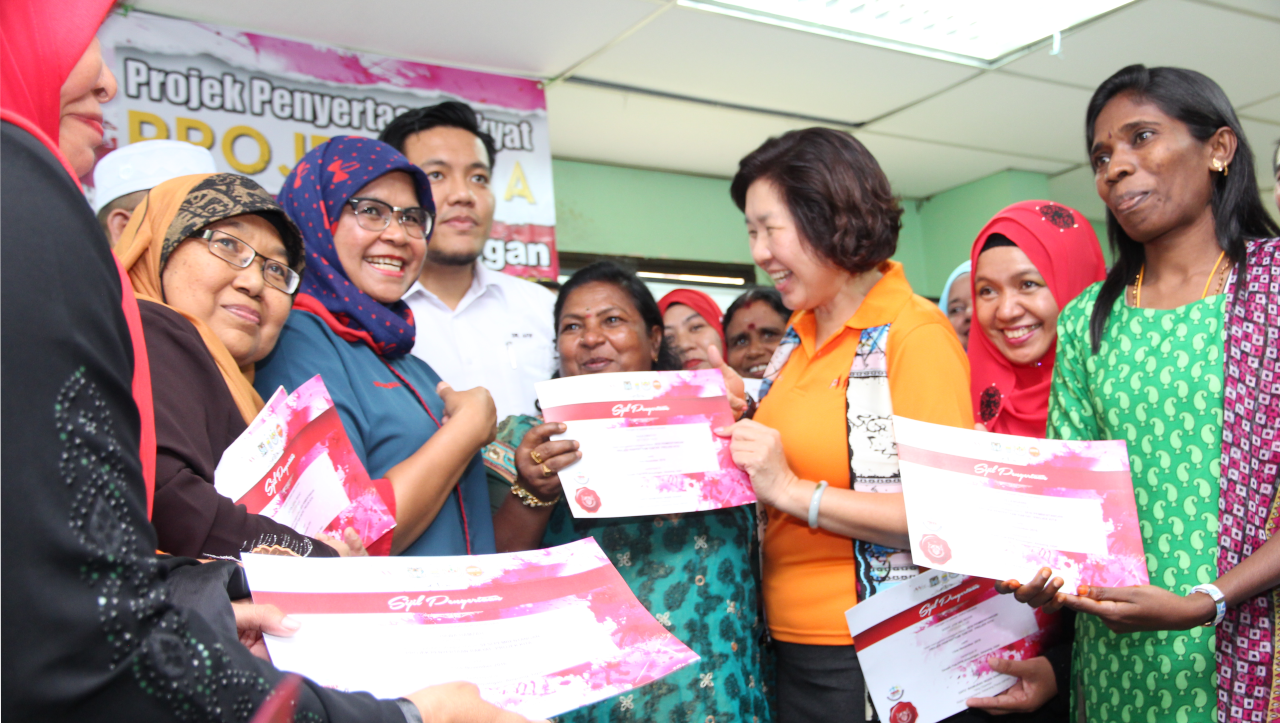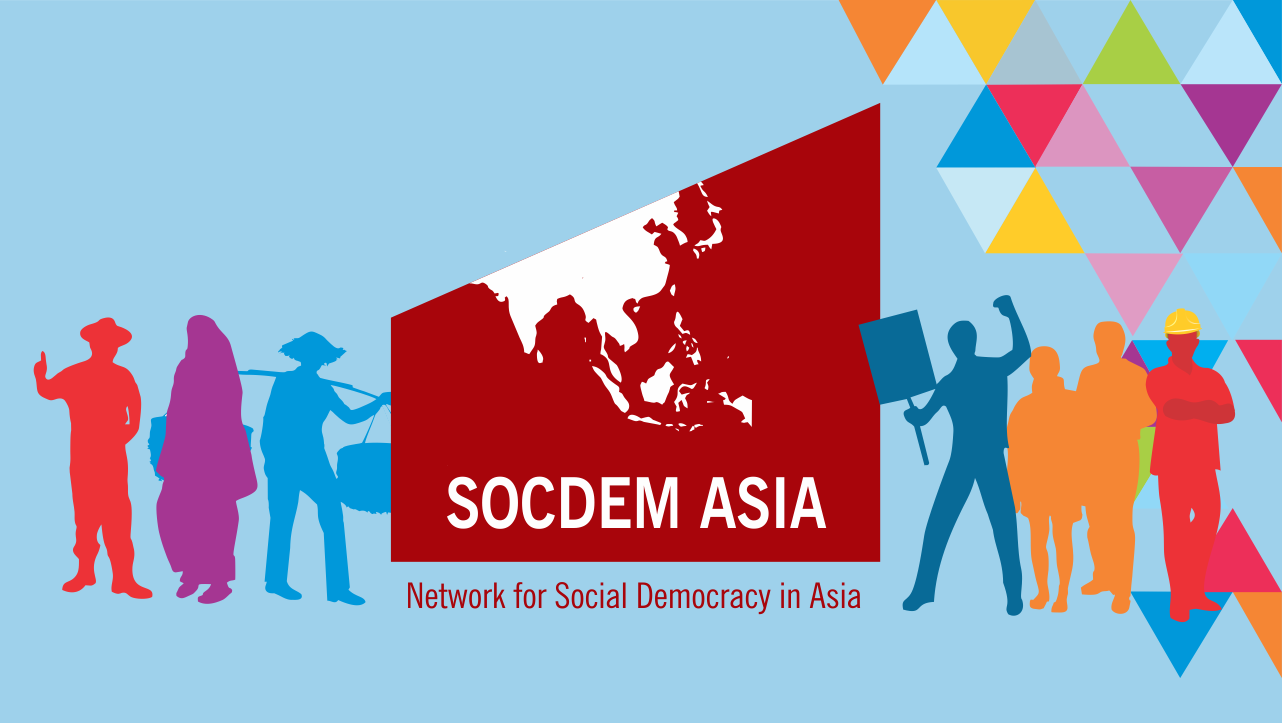
Promoting Social Democratic Thinking, Alternatives and Practices
Approved November 2018
Socdem Asia is a regional grouping of political parties, platforms, and movements who share social democratic values and perspectives and work to combat inequality and ensure human dignity for all. Together we aim to promote the values and practices of social democracy and fight for alternatives to elitist politics and neoliberal capitalist economic organization.
Continuing Democratic Contestation in Asia
Home to more than half the world’s population, Asia a crucial cog in the machine that is globalization. The region’s march along economic integration had not translated into development that is equitable nor inclusive, even as the region achieved vaunted levels of growth.
The economic growth taking place in Asia is within the dominant framework of neo-liberal, free-market economics. Asian economies have been marked by the conditionalities of international financial institutions (IFIs), in tandem with national and global elites and transnational corporations aggressively promoting a narrow vision of development centered one-sidedly on GDP growth, investment inflows, trade expansion, and fiscal stability. This often comes at the expense of wiping out entire industries and agriculture across Asia, destroying the region’s natural resources, and working people’s being pushed down into unprecedented levels of poverty and marginalization.
As a result, the peoples of the region have become susceptible to cycles of economic instability, social dislocation, and political disenfranchisement. Such alienation creates an atmosphere of distrust and uncertainty toward institutions which seemingly irresponsive to the said continued cycles. These very real fears now take palpable expression in a wave of populist, autocratic tendencies resurrecting in the region. This wave often ascribe this oppression to the unviability of democracy as the preferred method of governing and have further undermined human rights values in many Asian societies.
Across the region, the stranglehold on power by autocrats and despots manifested in its history. The shifting balance of forces overcome overtime. But throughout the region remains a hotbed for contesting democratic ideals against established or creeping authoritarian forces.
Combating Inequality as a Core Agenda
Globally, the concentration of wealth in the hands of the 1% equal to the bottom 50% of the population shows how the system is rigged against the majority, while the very few enjoy tax breaks, profit from their privilege, while stashing their loot in tax havens or in industries that destroy the environment.
Everywhere -- people of color, women, LGBTs, indigenous peoples, peasants, fisherfolk and workers -- toil to eke out a living for themselves and their families. Incomes continuously drop in real value while the cost of living continue to rise beyond their reach.
Indeed the gaping chasm between the haves and have nots is not a product of choice, nor of destiny. It is the impalpable confluence of systemic, institutional and socio-cultural factors that divide the rich and poor. With its emphasis on others losing so that some may win. Inequality will continue to divide humanity under current unjust capitalist structures. It is then the task of the progressive movement to continually push towards redistribution, uphold dignity for all and address structural roots of inequality.
The capitalist global order has made the world more and more connected, in terms of trade, cultural exchanges and information technology. But it has not made for a more connected world. Where an awareness of what happens beyond the borders of our own countries should help consolidate the global community, the tendency has been to highlight the differences than our shared aspirations. The availability of information ironically has not optimized the translation into deeper awareness and empathy toward others despite differences.
In urban centers around the world the migration of more and more workers looking for jobs has created competition for jobs that are paying lower and lower wages. Elsewhere, the threat of automation is slowly destroying jobs that required manpower, and where jobs may still be present, the gap between what men and women receive also shows a disparity that has not been addressed.
The threat of losing jobs to cheaper labor, or recently to automation; the vulnerability of migrant labor to xenophobia, abuse and hate crimes, the swim or sink culture of urban centers with the overburdened transportation, housing and health systems are just some of the features of a capitalist system where the rule is to survive the race to the bottom.
Locating Political Alternatives through Principles
Limits of liberal democracy had shown interests of the elite in political and economic structures are still perpetuated. The guise of creating law and order and even electoral exercises to protect individual freedoms does not extend to transformation of society, falling short of emancipatory aspirations. Moreover, in the above dispensation, there is limited recognition that legal and institutional protections of civil, political, social and economic rights are themselves products of citizen’s participation which is needed to protect these institutions from the assault by autocrats and populists.
On the other hand, communist regimes have only birthed totalitarian and undemocratic states with one party dictatorships. Their centralized command economies have also ensured that a layer of party elites have sole access to the economy while the rest of the population are shut out. Such have only served as ammunition for neoliberal and conservative forces to cast suspicion on all progressive and democratic forces on the left.
Socdem Asia thus seeks to establish itself in contrast to these ideological inadequacies. Socdem Asia upholds freedom, social justice and solidarity as its core principles, with an emphasis on popular participation and equal opportunity to achieve human dignity. We envision a future where structures and people overcome inequality, income is fairly distributed, corporate hegemony is reversed, and solidarity across gender, ethnicity, race, and other socio-political, cultural and even religious affiliations translates into empowerment.
Human rights and democratization
Socdem Asia asserts that democracy and socialism can only be fully realized, not only by reforming the state, but also by mainstreaming human rights and democracy in everyday life, through vibrant civil society and an engaged citizenry. Because despite advances in recognizing human rights in the region, largely through the work of activists, advocates and their networks, enormous challenges remain.
Socdem Asia as a platform seeks to raise issues of human rights violations, push for the rights-based approach to development and poverty eradication, underlined by gender equality and the empowerment of unions.
We believe that all these political struggles must be coupled with the exercise of universal suffrage and the strengthening of political parties, especially where the elites have deliberately withheld the exercise of democratic options. The ballot represents the poor’s most potent offense against the machinations to keep them at the fringes of governance. Political parties must articulate the people’s agenda as they take the parliamentary road to advance and deepen democracy and realize socialism.
Sustainable Development
Socdem Asia looks at development not only as growth in the present but where the welfare of future generations and the ecological balance of the planet are strategically taken into account. We oppose the relentless, short-sighted pursuit of economic growth founded on extractive economic practices that undermine the carrying and regenerative capacity of nature.
We assert that markets cannot be the ultimate arbiter of individuals’ needs. For a region vulnerable to disasters and has seen the rapid loss of watersheds, forest covers and intensified weather events, Socdem Asia asserts the necessity to reverse past mistakes by investing our resources to protecting our biodiversity, mitigating the impact of climate change, and harnessing our political institutions to ensure resilience.
We also stand to work as a coordinated block of political parties and social movements to elicit commitments from governments to ensure the shift to energy democracy and the pursuit of clean technology to provide for the region’s energy needs, away from the destructive options that only contribute to the degradation of the planet.
Social state and universal social protection
Socdem Asia promotes transformative social protection from being “social safety nets” to one that aims to strengthen a social state. It is such state that provides a broad spectrum of basic social services including health, education, clean water, electricity, humane housing, education, adequate and affordable food for all, and living pension and assistance to vulnerable groups (i.e. elderly, disabled, peasants, unemployed).
To achieve this, we must fight for social spending on important welfare services and programs. We must persuade governments to invest in human development, and curb the corruption that siphons resources away from needed services. Governments must also reform their fiscal policies to free up these resources, bring them closer to their constituents and allow the people a voice in shaping the policies and programs where these investments should go.
We believe that individual states must be committed to achieve full employment, support labor-intensive projects and relief programs to the poor such as conditional cash transfers, which are domestically sourced and sustainable.
Lastly, we commit to engage our respective governments to take concrete steps in shifting away from heavy export-led growth toward asset redistribution and social justice to ensure real inclusive growth and the growth of domestic economies.
People centered Regional Integration
Socdem Asia believes that regionalism requires more than just efforts to opening up markets but the robust and cooperative management of shared concerns among nations, from climate change to food security, poverty eradication, workers’ rights, health and migration.
We also recognize that the shared concerns on respect for sovereignty and the utilization of common resources presents a dilemma that can impact the poorest peoples of Asia. We commit to maximizing the spaces provided by international law, and to work towards peaceful co-existence and mutual cooperation using multilateral platforms that respects sovereign states’ rights to their territories.
We also view with grave concern the rising tide of religious extremism and commit to promote cross-cultural understanding and tolerance through dialogue and cooperation. By bringing the fruits of development closer to the communities, we can deprive extremism with the fertile grounds for recruitment; peoples of various beliefs are able to come together in an atmosphere of mutual respect.
Socdem Asia strives to present a coherent and strategic vision of regional integration that is partial to the region’s peoples through the integrated analysis and action on a combination of human rights, economic, social, gender and climate justice perspectives.
Decent Work, Decent Life
Socdem Asia endeavors to empower the working people by restoring the balance between management and labor, reversing the systematic erosion of labour rights to maximize profits through sub-contractual work, labor flexibility and other onerous arrangements. We aim to protect the rights of migrant workers through the promotion of safe, decent work.
We believe that decent work should stand at the forefront of achieving human dignity and the cornerstone of any democratic society. We support the four pillars of ILO’s Decent Work Agenda: job creation, guaranteeing of employment rights, expansion of social protection, and promotion of social dialogue.
Moving Forward
Socdem Asia takes on the challenge of the times by bringing forth social democratic alternatives to become the consensus for economic development and political participation. We have had enough of neoliberal economic policies that have left the people powerless against private enterprises, global capital, and climate change.
We recognize that the real empowerment of the ordinary people lies in a comprehensive, multi-sectoral, and multilateral approach to local and regional development.
As political parties, politicians, and social movements, we are challenged by the times, now more than ever, to come together to fight a growing tide of populist resurgence and the threats of dictatorship. The political context is unbending to compromise. When politics of extremes seem ascendant, we, progressives, are called upon to articulate our shared vision of an alternative future that combats poverty while the rights of every citizen is protected and promoted. It is a vision of a society where our safety, our well-being, should never have to come at the expense of another human life nor economic relief be attained at the expense of our freedoms.
The task ahead for us is to continue to strengthen a transnational and at the same time nationally-relevant movement in gaining greater clarity on our shared struggles, distill the lessons from our incremental victories, and bring these into our organizing work and inspire us to win more political battles in legislation, elections and transformative governance work.
Our actions as Socdem Asia is rooted in our common analysis of the world in which we operate, but this must always redound to the benefit of multiplying our forces on the ground, elevating the consciousness of our peoples on the ideals we hold and translate these into action that enlightens and empowers.
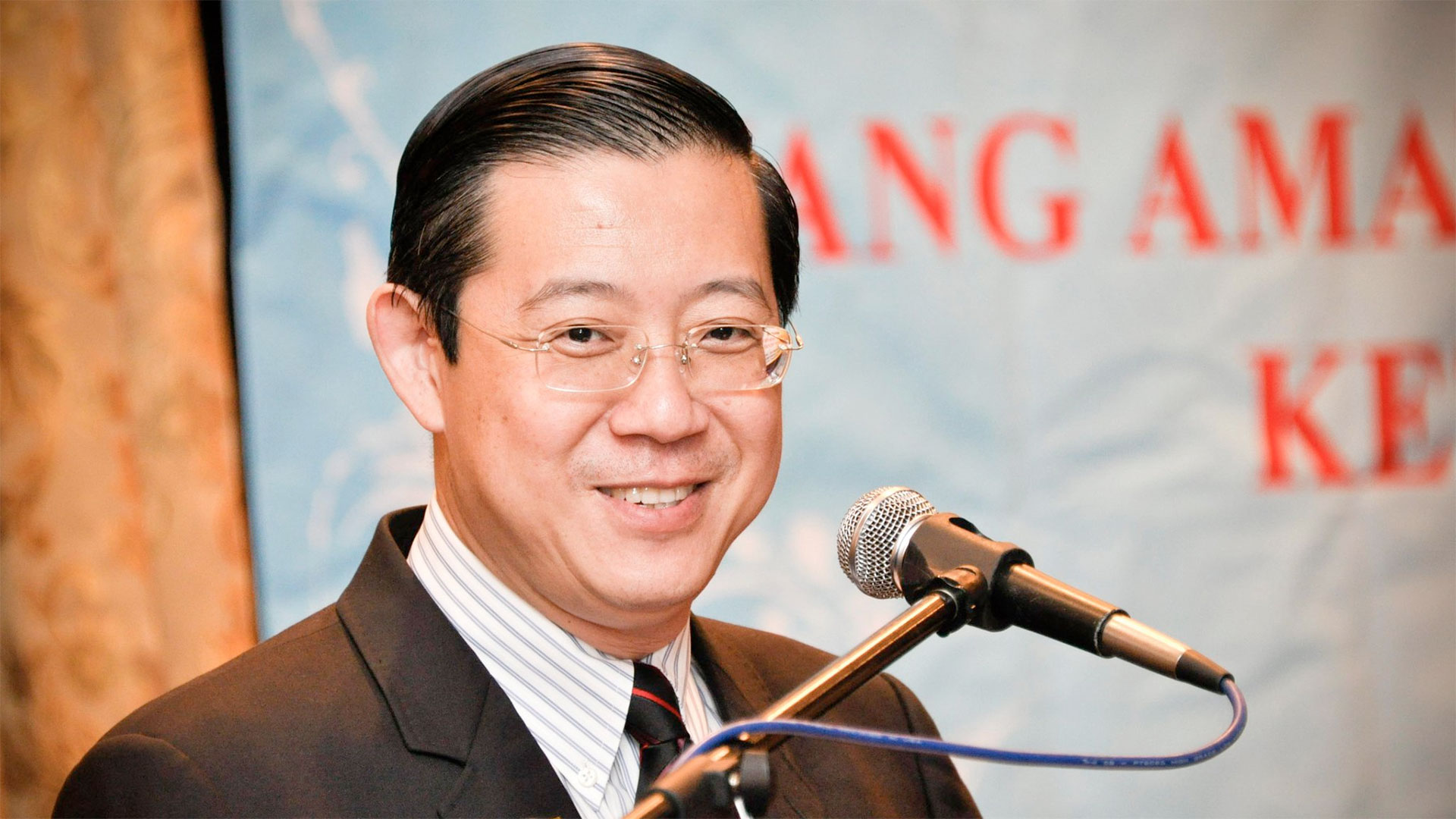
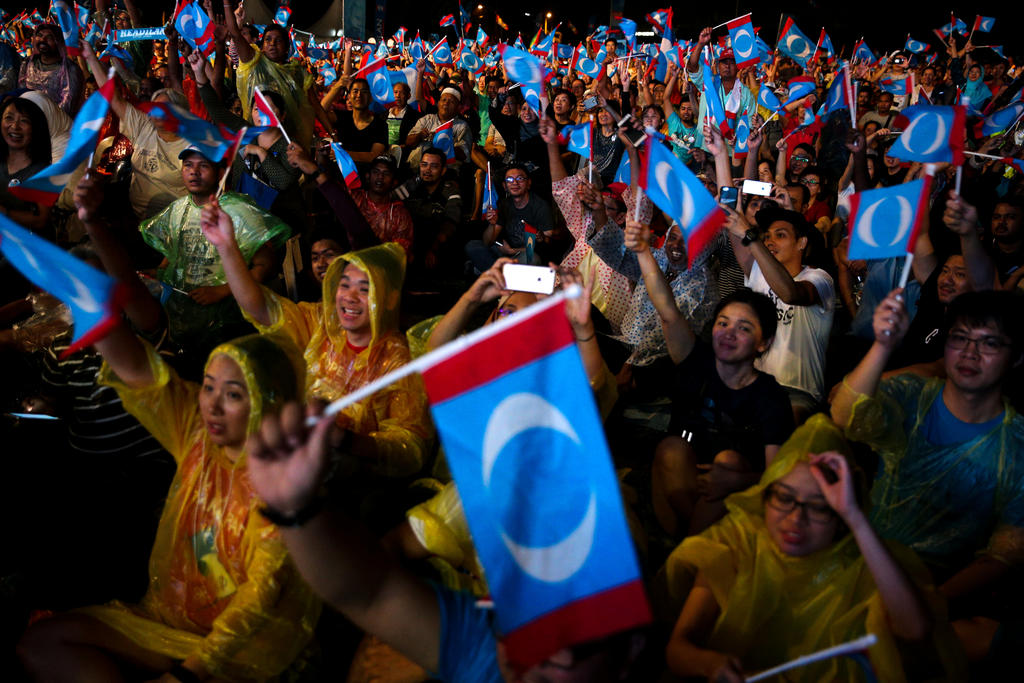

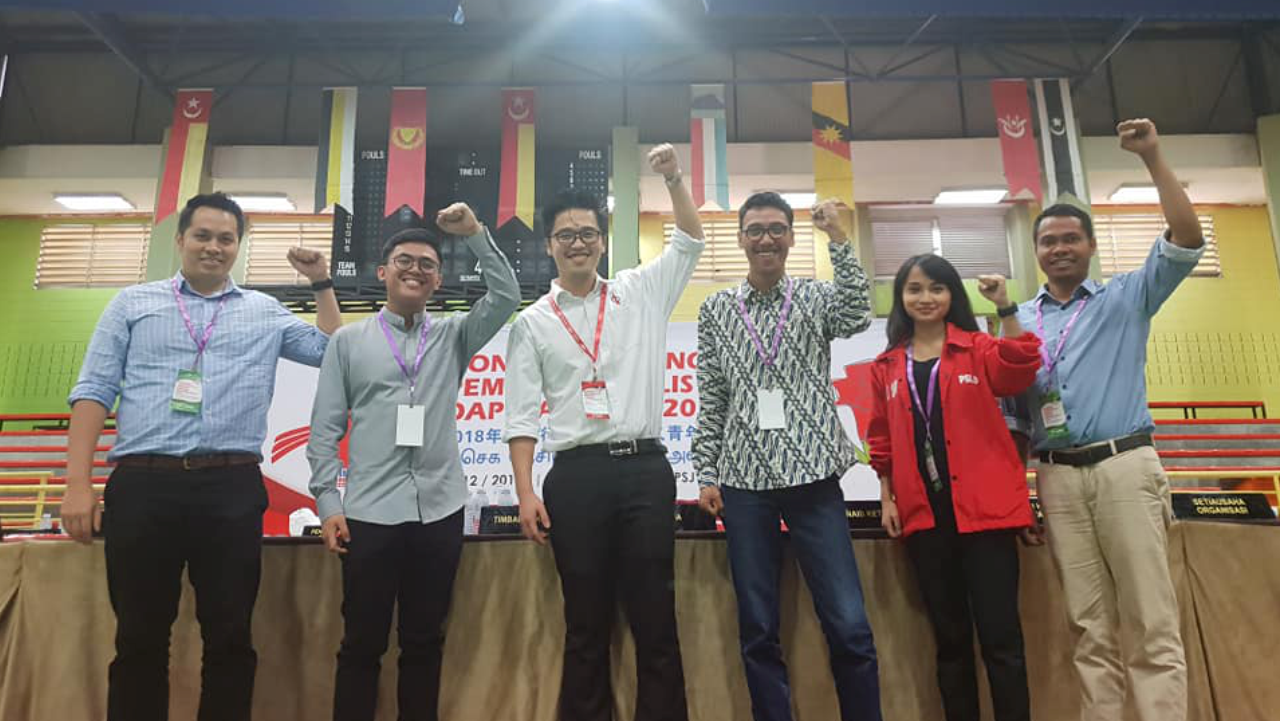
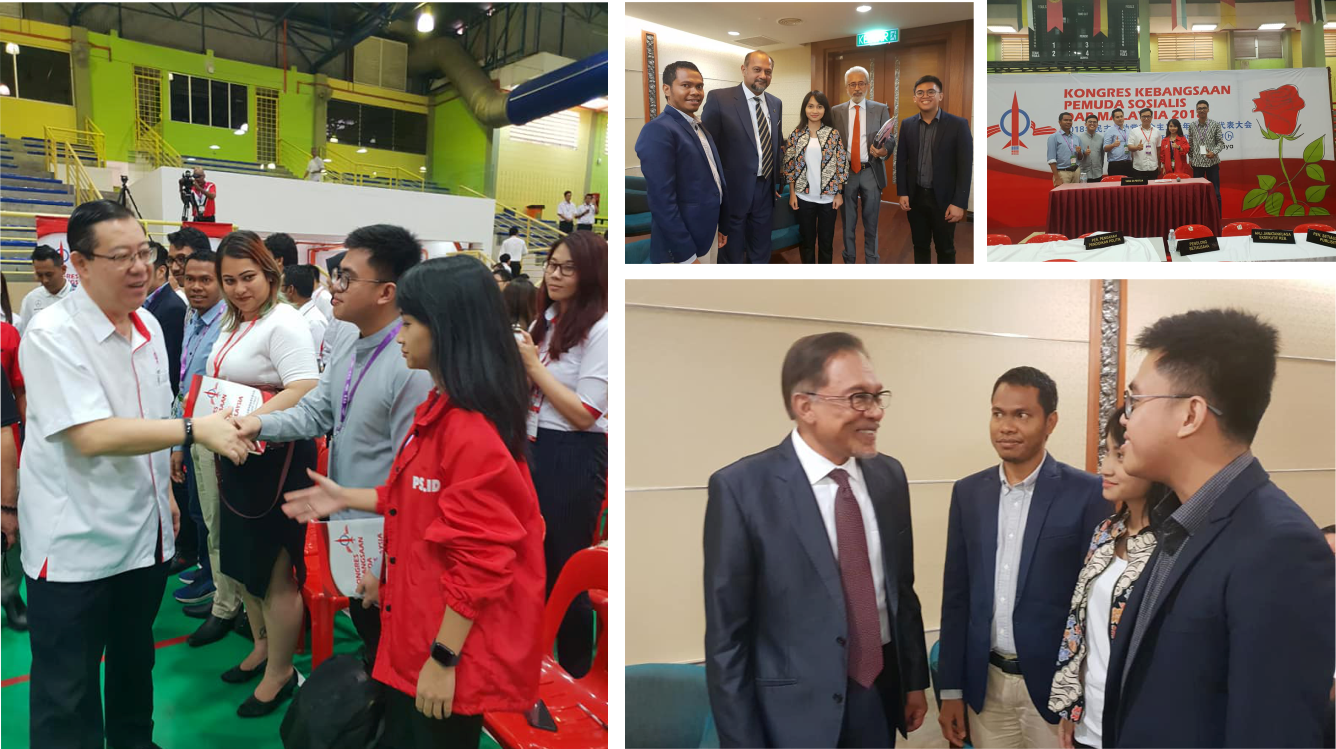
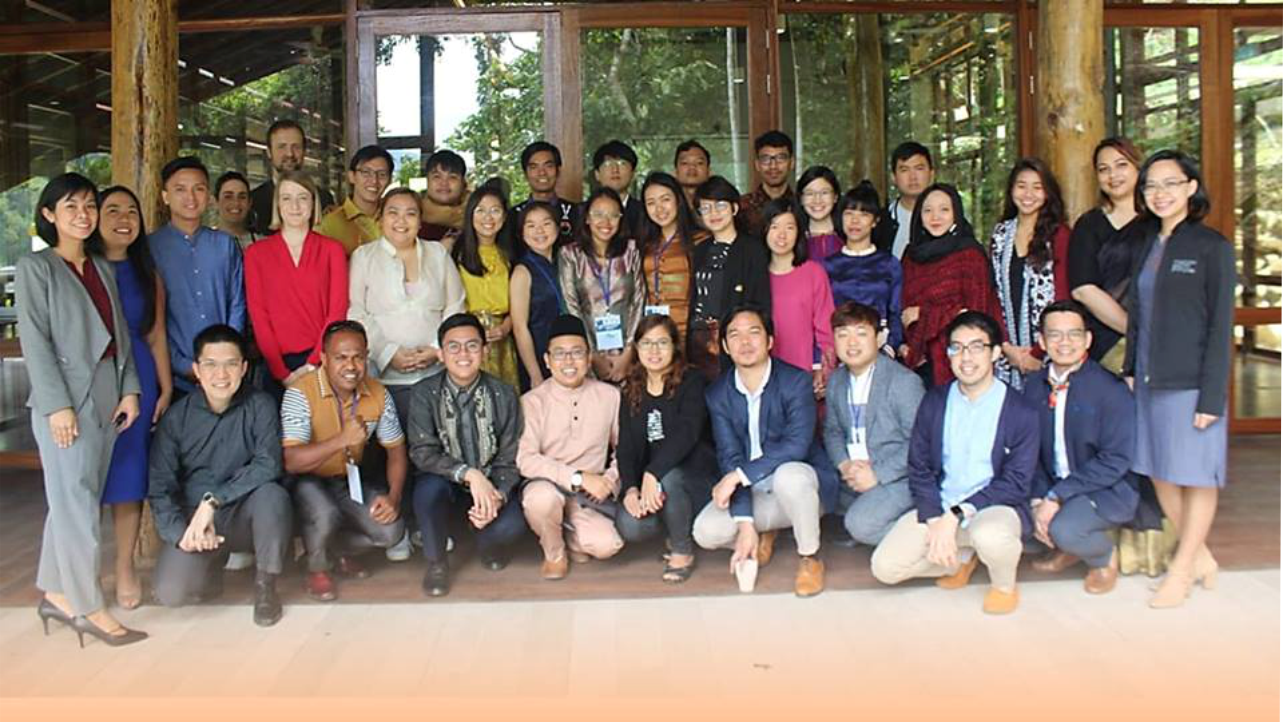
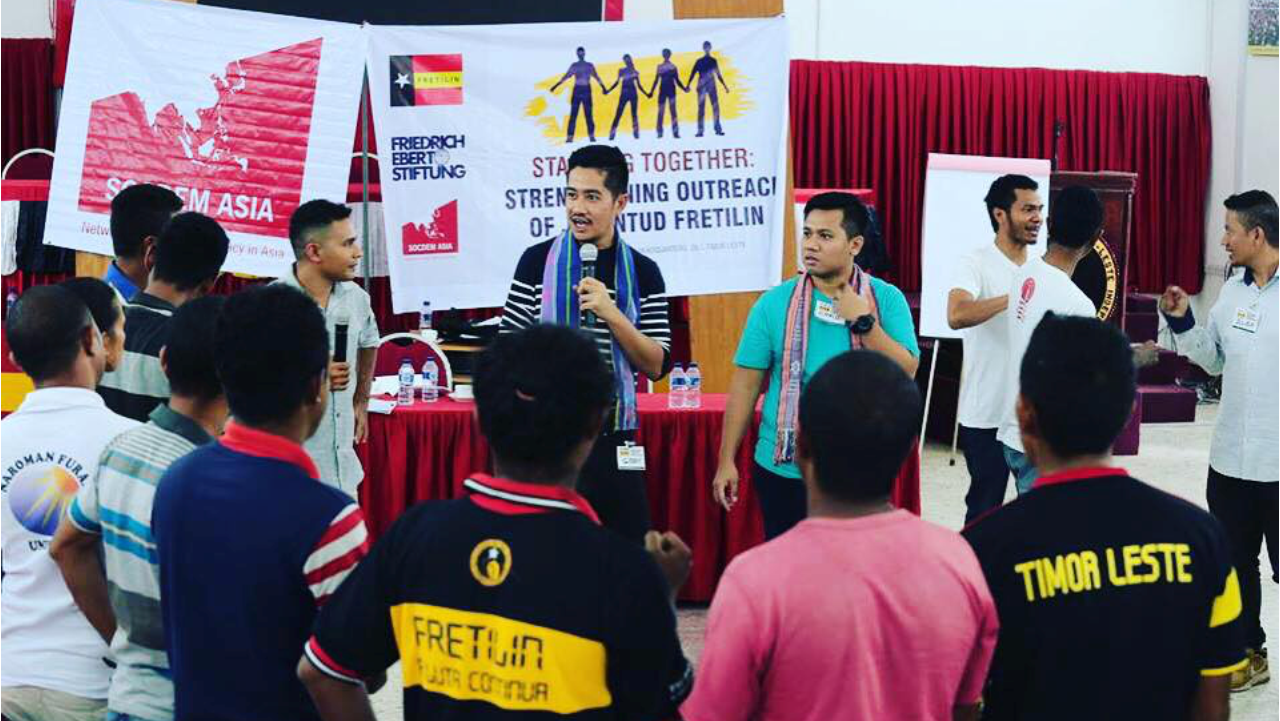
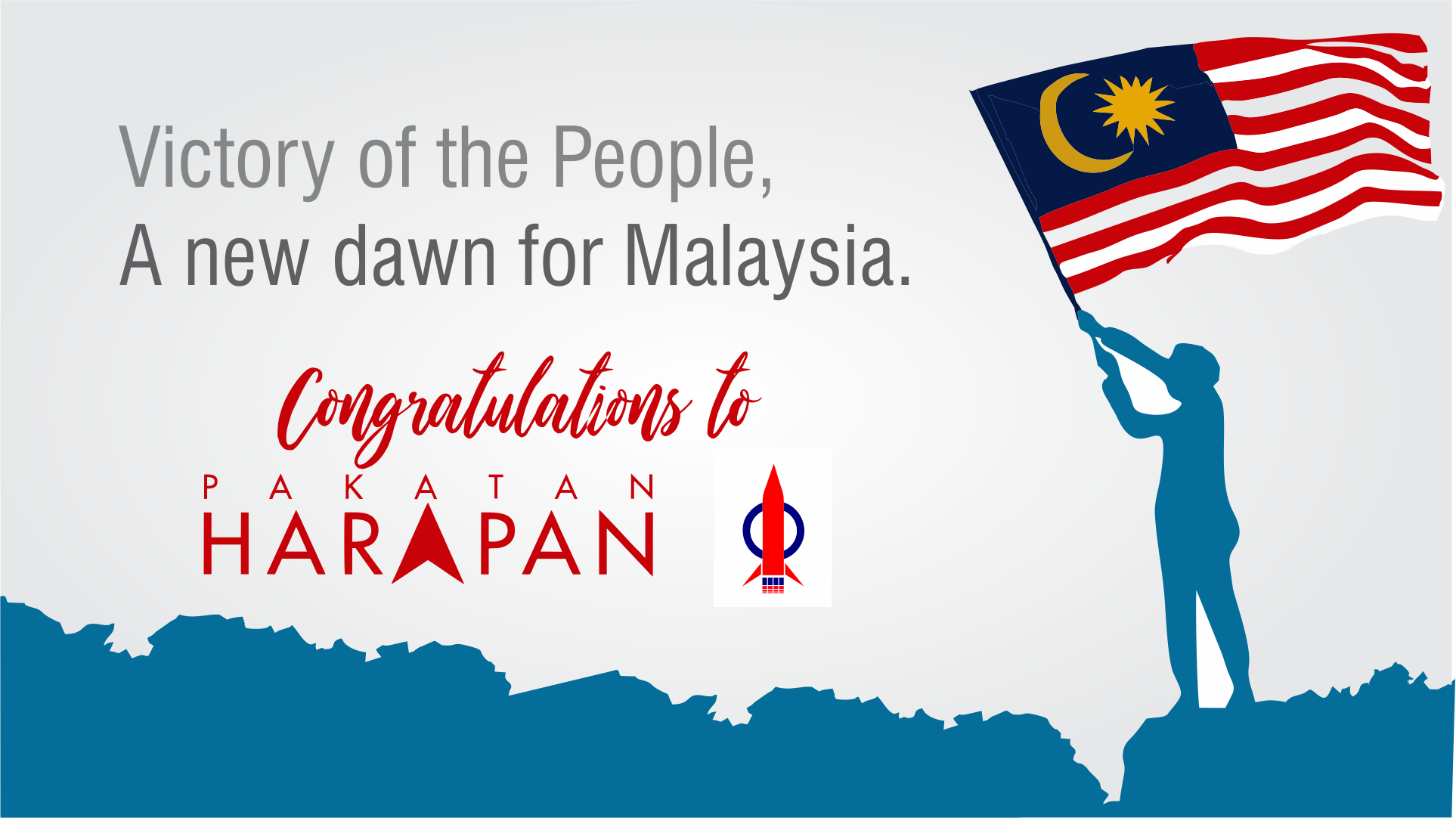
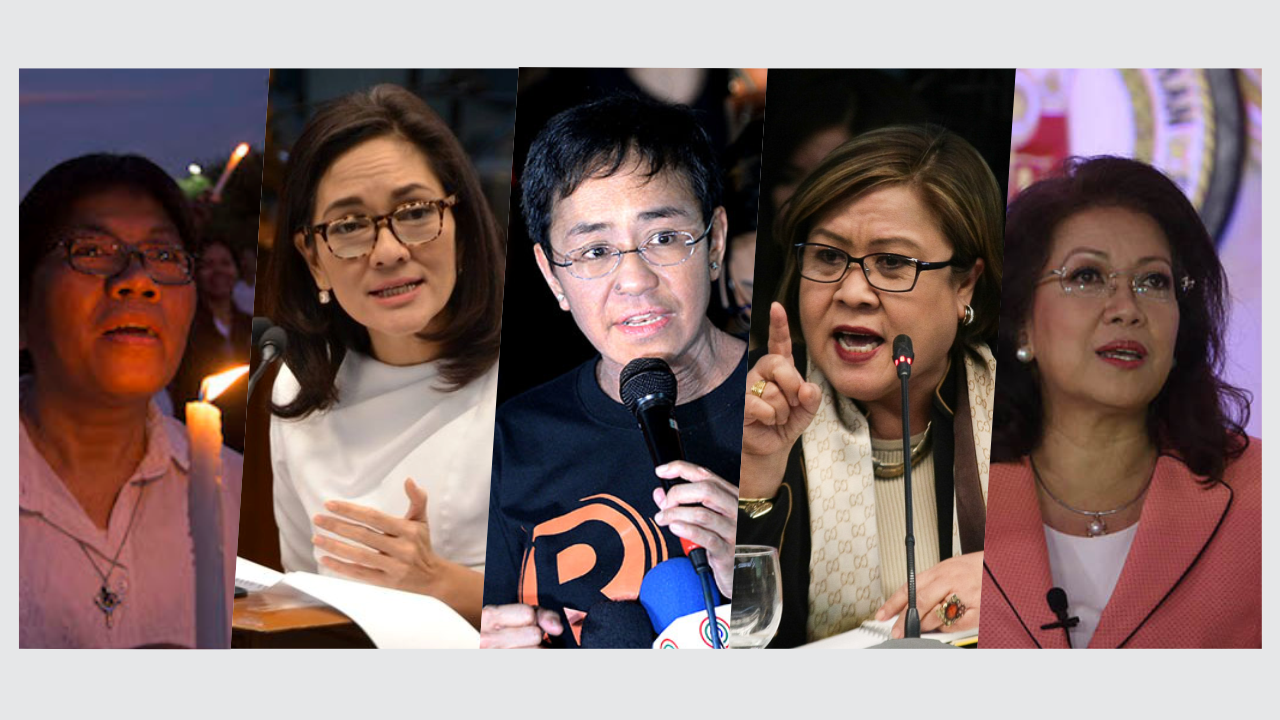
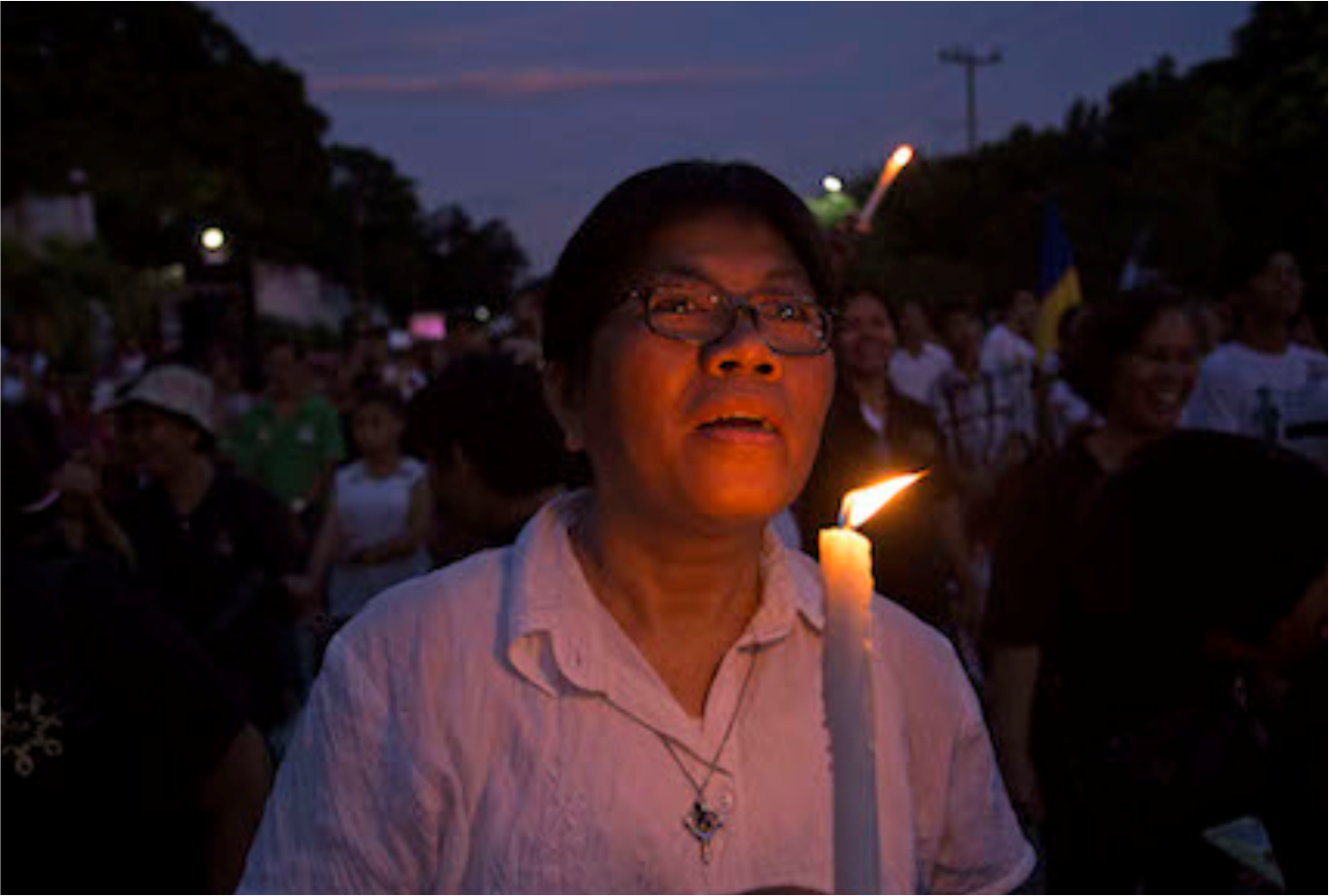 Sister Nenet Daño of Our Lady of Charity of the Good Shepherd is an organizer in San Andres Bukid, Manila. She was one of the first to take the Duterte government to court for Oplan Tokhang, the government’s murderous anti-drugs program. When people in San Andres Bukid fell prey to the killings, she started documenting the cases in her small diary, taking careful details of the names of the dead and the date they were killed.
Sister Nenet Daño of Our Lady of Charity of the Good Shepherd is an organizer in San Andres Bukid, Manila. She was one of the first to take the Duterte government to court for Oplan Tokhang, the government’s murderous anti-drugs program. When people in San Andres Bukid fell prey to the killings, she started documenting the cases in her small diary, taking careful details of the names of the dead and the date they were killed. 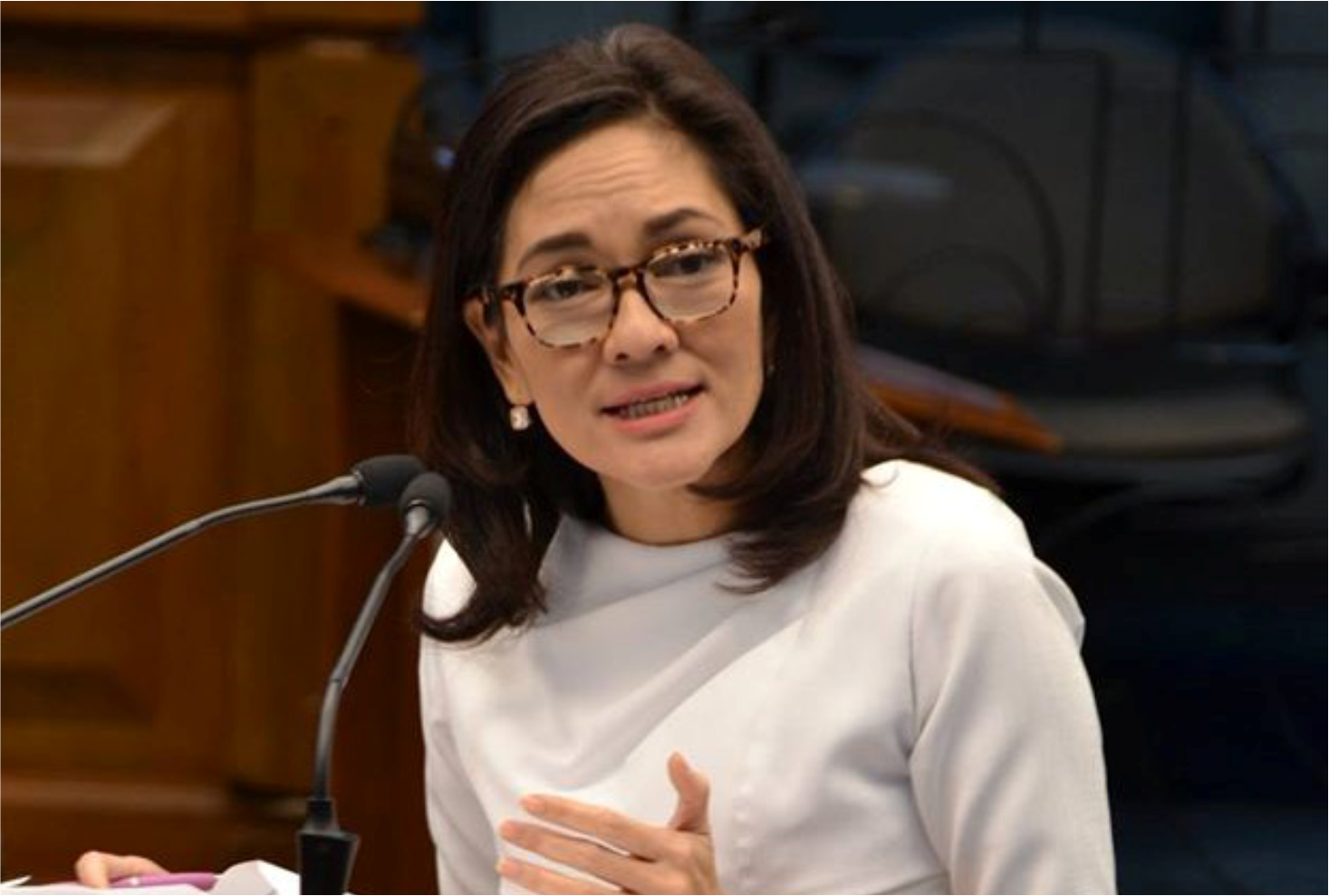 “Duterte’s first year is a dangerous for woman,” Akbayan Senator Risa Hontiveros wrote on June 2017 as President Duterte had his first State of the Nation Address.
“Duterte’s first year is a dangerous for woman,” Akbayan Senator Risa Hontiveros wrote on June 2017 as President Duterte had his first State of the Nation Address.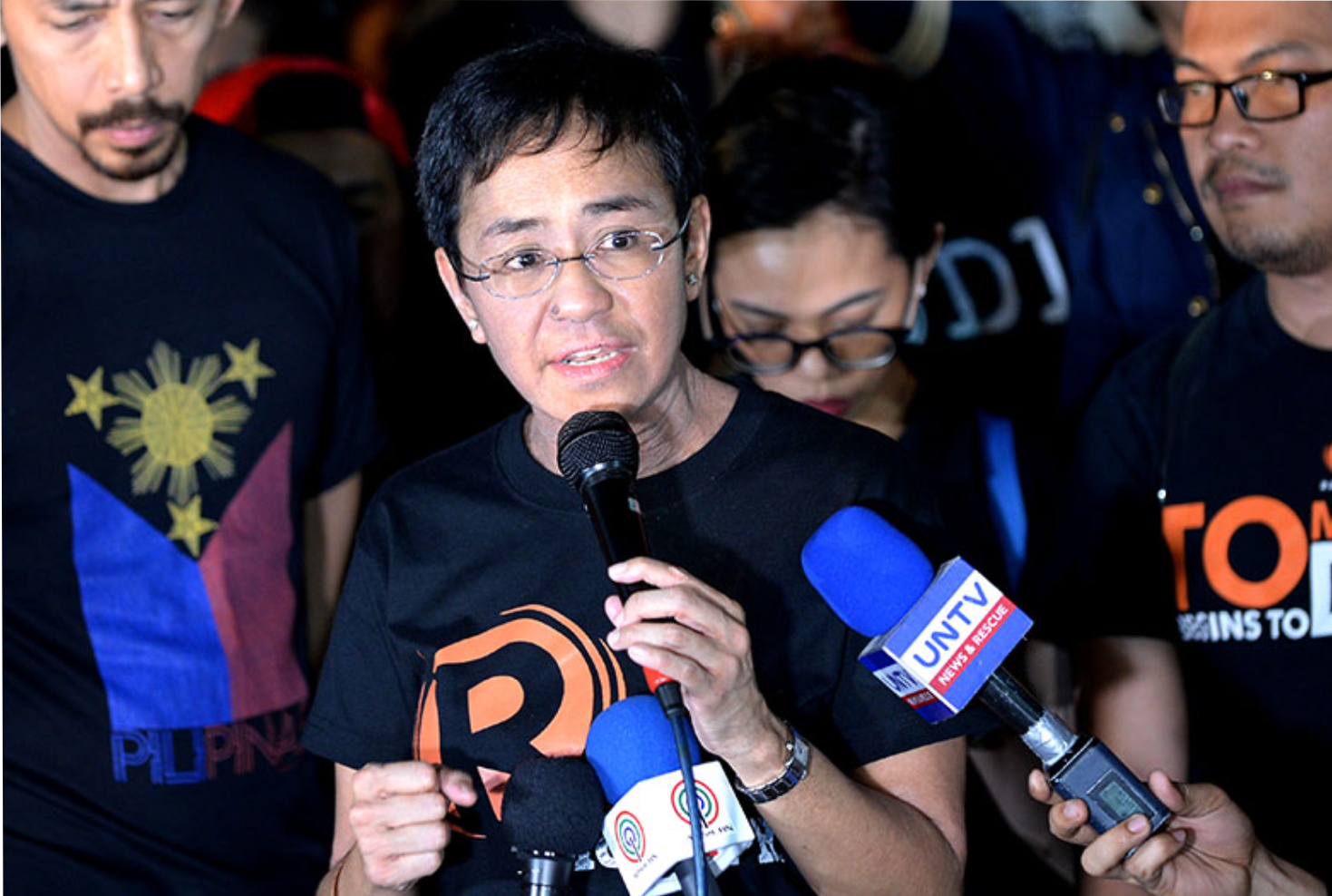 Maria Ressa, the CEO of Rappler, was the first to ring the alarm against the rise of fake news in the Philippines. In her exposes on Rappler, a social news site based in the Philippines, Ressa wrote about an infrastructure, possibly state-sanctioned, built to deceive the public ‘to intimidate and silence critics’. Fake news blogs started sprouting all over Facebook, confusing the people about the truth to disrupt public discourse. She compared the phenomenon to authoritarian tactics of Russian leader Vladimir Putin and Chinese president Xi Jinping, who have become close allies of Duterte in recent years.
Maria Ressa, the CEO of Rappler, was the first to ring the alarm against the rise of fake news in the Philippines. In her exposes on Rappler, a social news site based in the Philippines, Ressa wrote about an infrastructure, possibly state-sanctioned, built to deceive the public ‘to intimidate and silence critics’. Fake news blogs started sprouting all over Facebook, confusing the people about the truth to disrupt public discourse. She compared the phenomenon to authoritarian tactics of Russian leader Vladimir Putin and Chinese president Xi Jinping, who have become close allies of Duterte in recent years.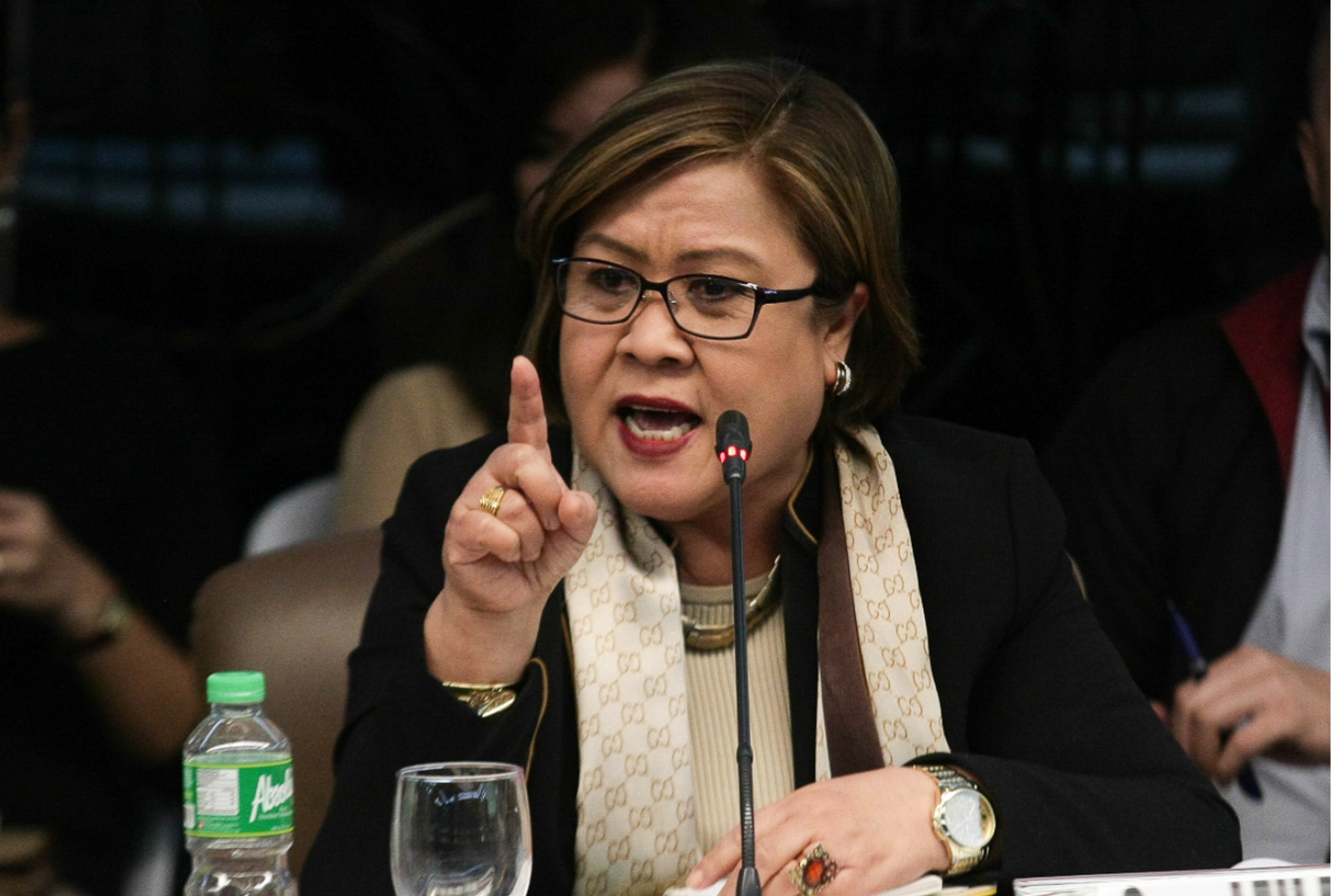 Senator Leila De Lima is the first high-profile political prisoner of President Duterte.
Senator Leila De Lima is the first high-profile political prisoner of President Duterte. 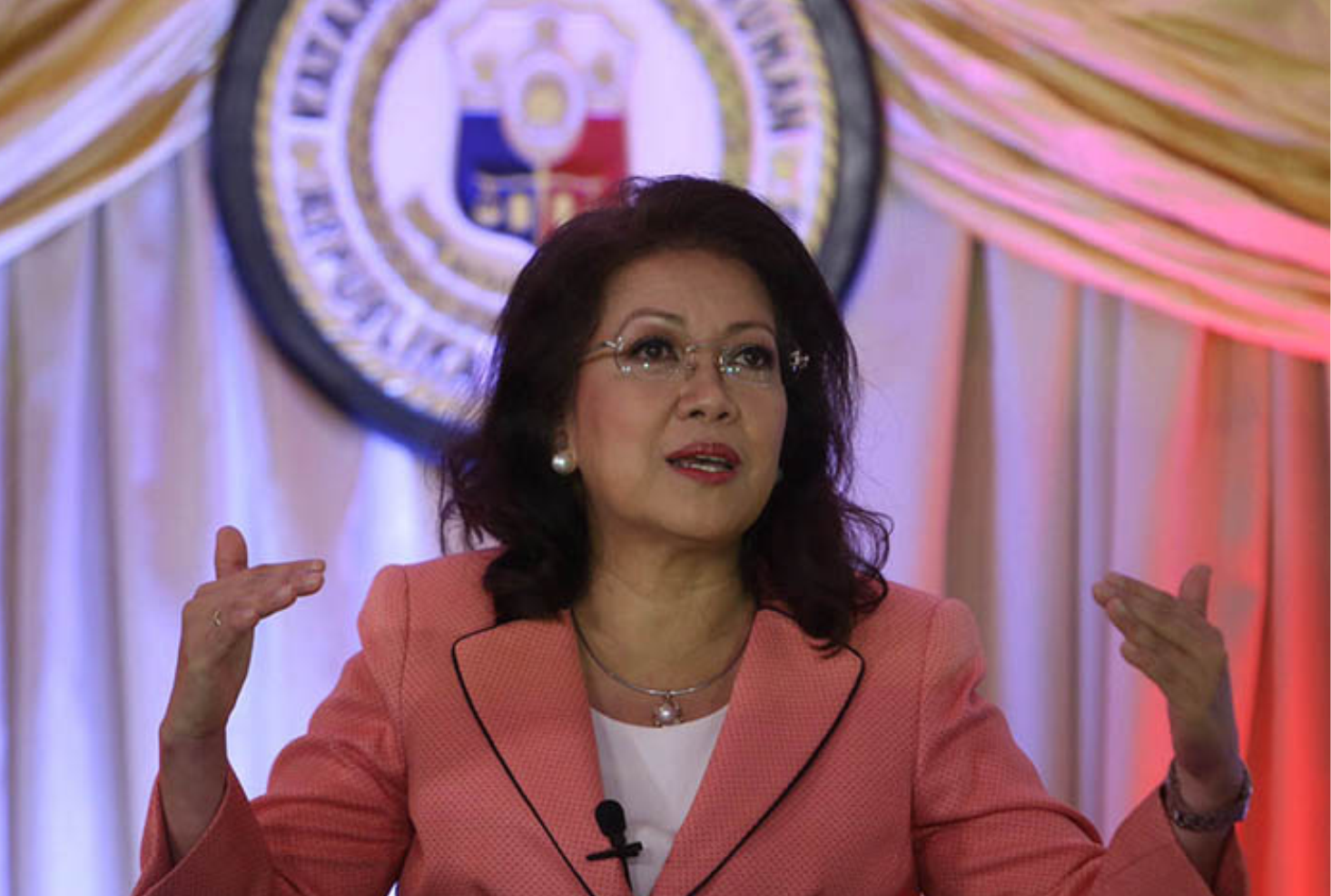 When Duterte started baring his personal list of politicians he accuse of being involved in the drug trade, Chief Justice Maria Lourdes Sereno was defiant, saying that judges on the list don’t have to surrender to authorities without a warrant from local courts.
When Duterte started baring his personal list of politicians he accuse of being involved in the drug trade, Chief Justice Maria Lourdes Sereno was defiant, saying that judges on the list don’t have to surrender to authorities without a warrant from local courts.